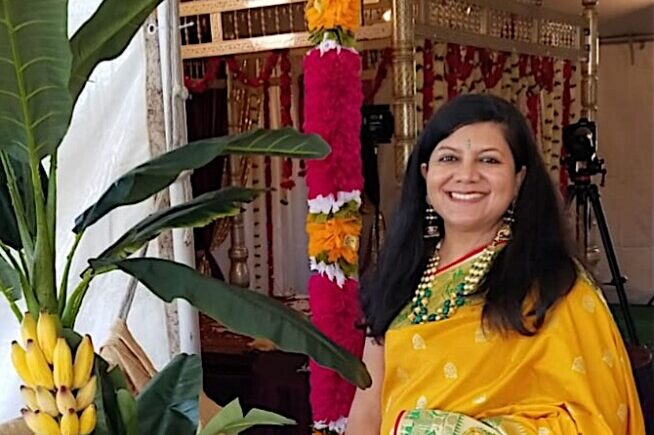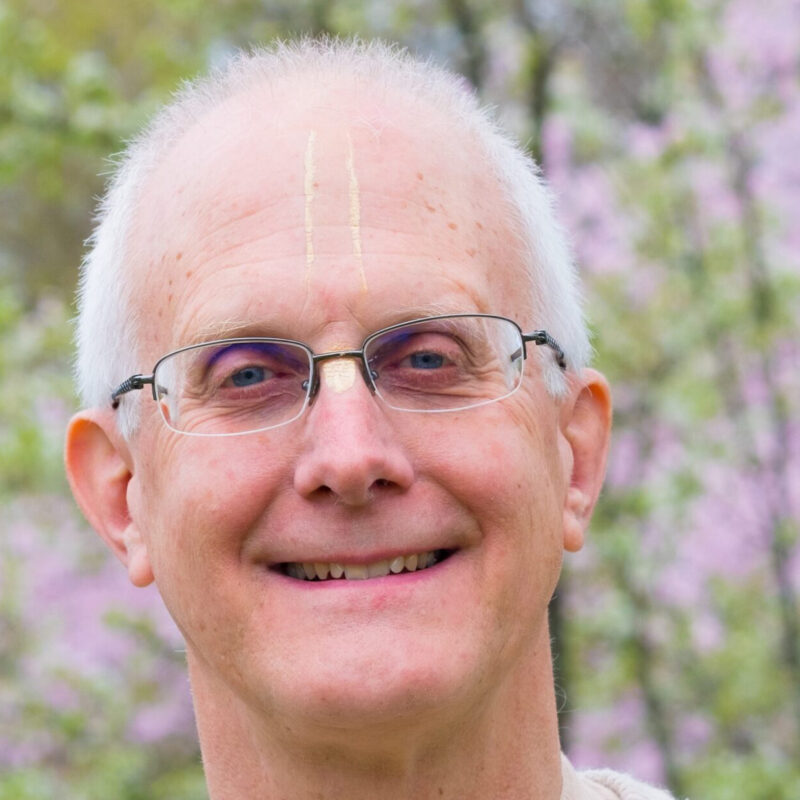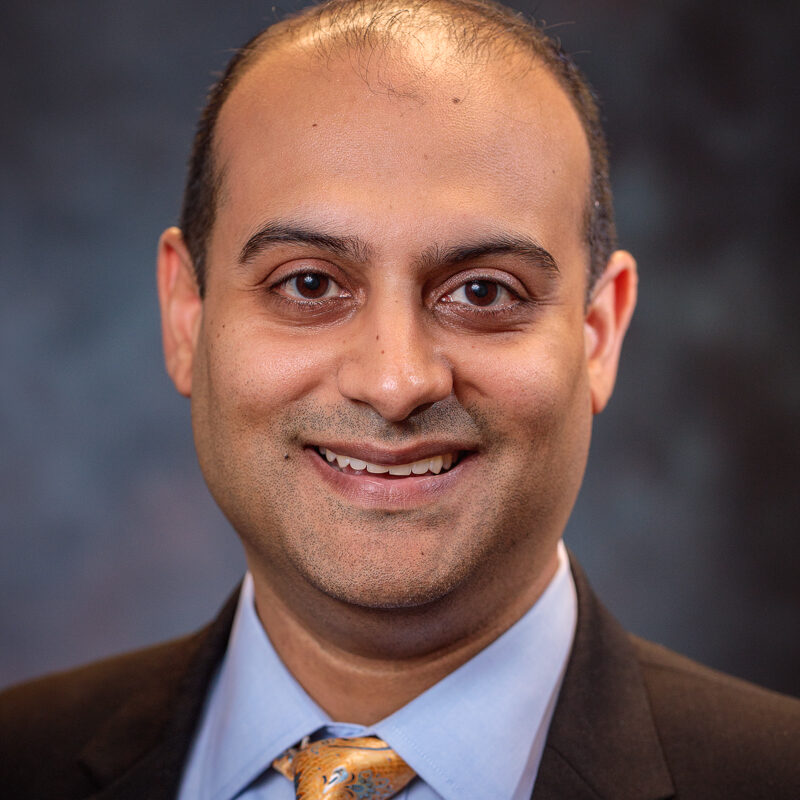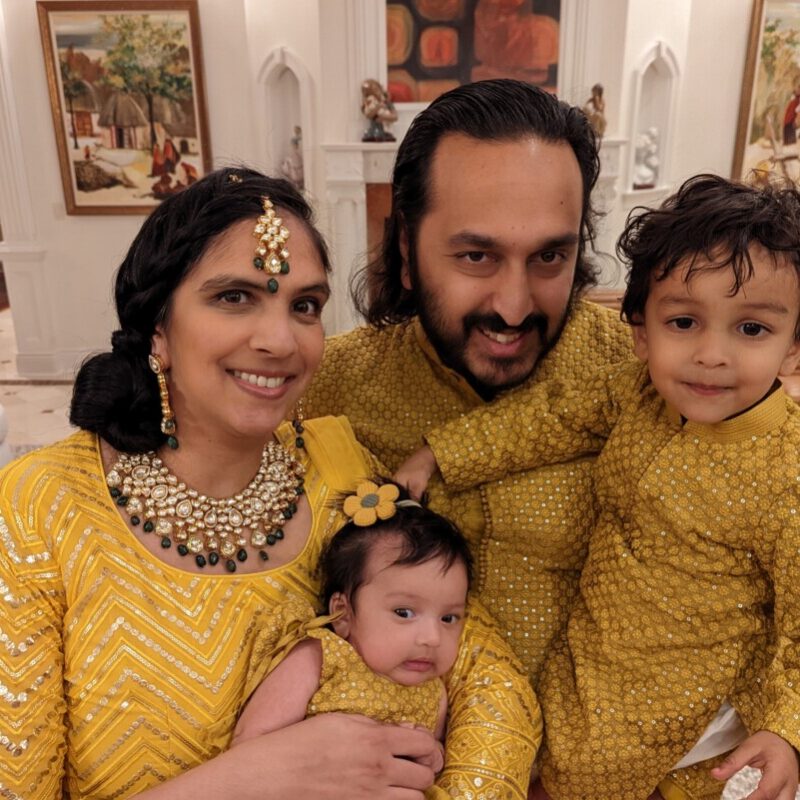
The supreme source of creation, according to Hindu texts, naturally comprises all of life’s dimensions, and therefore includes not only a masculine aspect, but a feminine one as well.
Known as Shakti, or the creative and energetic force of the Divine, the latter provides a spiritual balance to the former, and is thus revered by adherents through various goddess forms, who are particularly recognized during certain festivals of the year — a special one being Navaratri.
A nine-night observance that honors the role the loving, compassionate, and gentle, yet sometimes fierce, feminine energy plays in our lives, Navaratri is famously topped off with a 10th-day celebration of Vijayadashami (commemorating the victory of Goddess Durga over the demon Mahishasura).
Of course, with Hinduism being the incredibly diverse tradition it is, there are many who choose instead to spend the day meditating on a different victory, that of Rama over the demon-king Ravana. While, in this case, it isn’t a goddess directly who destroys the unscrupulous enemy, it is one who inspires such destruction, as it’s the immeasurable power of Sita’s love and devotion that fuels Rama’s drive to vanquish her dishonorable captor.
So, regardless of which pastime one chooses to focus on, the unrelenting light of Shakti dispelling the darkness of corruption is an ultimate lesson every celebration endeavors to appreciate. And, depending on the community, each can look a little different.
The following is an interview with Ramya Ramakrishnan, a South Indian American who immigrated to America in 1996, and who now serves as Community Outreach Director for the Hindu American Foundation [HAF]. Having participated in the festivities her whole life, she shares with us her unique perspective: how she celebrated, how she celebrates now, how her outlook and appreciation have evolved over the years, and more.
What are your earliest memories of Navaratri and or Dussehra? What about the holiday period initially resonated with you?
I spent the first 22 years of my life in India, so my earliest memories of Navaratri were, of course, there.
Many families in South India, including my own, have this tradition of keeping golu [traditional display of dolls, figurines, and deities depicting various Hindu pastimes] for the festival. So my earliest memories were really fun ones of going to the golu events at my friends’ houses, and kind of comparing the arrangements in different homes, while also receiving people at our place.
We’d spend each day of Navaratri praying and preparing naivedyam [sacred food offerings] to the goddesses, and there would be lots of singing, classical music — bhajans [devotional songs] and all of that.
Can you describe, in detail, how you observe the festival time today? What, specifically, makes your community’s form of celebration unique to others?
I think the way it’s celebrated today is a little different from how it’s been celebrated in the past. Navaratri is about honoring women — we worship all the goddesses — so in India, typically, women invite other women to their homes and offer haldi [turmeric], kumkum [sindoor], fruits, other foods, little gifts, etc.
But here, in the United States, what I’ve observed is people invite the whole family — husbands, grandparents, visiting friends, children, etc. It’s become a great social, cultural, and positive feel-good event. It’s great. So that’s one way I’ve seen it evolve over the years.
Another great thing I’ve noticed is that now in Calfornia — I’m sure it’s happening in other states as well — there are golu competitions. Families that have not traditionally kept golu at homes are now doing it, and there’s a lot of enthusiasm. I see lots of ads for golu dolls. And some of golu I’ve seen are so amazingly creative and beautiful. It’s lovely to see people adopt the tradition and want to be a part of it. Even those working in Home Depot, actually, apparently know what golu is, because so many families have reached out to them for advice on how to build their displays. So it’s amazing to see how popular it has become.
How has your appreciation for the celebration evolved as you’ve gotten older? What about it, now, resonates with you the most?
What resonates with me the most is how our tradition has had such a special place for women. We’ve always honored women, we’ve respected women a lot, and Navaratri is all about realizing the goddess within. I really appreciate how my faith, my tradition, my culture, has done so much for women empowerment. I feel lucky that I’m able to continue these lovely traditions and do my little thing at home.
Every year, I’m trying to step it up by learning new prayers or celebrating in a much bigger way than the previous year. I also enjoy discussing the festival with my friends, because every region in India celebrates Navaratri in a different way. I have friends from so many other states and like to compare and contrast their celebrations with my own, to see if there are any parallels. As I’ve gotten older, I’ve come to appreciate others’ traditions more and more.
What issues have you experienced in observing your celebrations in America?
In general, I haven’t experienced very many issues. One thing is that when I was growing up in India, I lived really close to all my friends, and we could go to each others’ homes in practically seconds. Hence, it was really easy to go to many homes during Navaratri, causing all nine days of the festival to be filled with a lot of activity.
Here, however, everyone is scattered. So, for the weekday portion of the festival, we have a mostly quiet celebration at home, offering prayers and prasad [sacred food offerings], and all of that. It isn’t until the weekend that people typically invite each other to their homes, as the celebrations generally become much more active and busy.
How do you believe HAF has helped in addressing those issues?
The major thing I would point out when it comes to how HAF has helped in connection to Navaratri, is its creation of the Shakti Initiative [an online clearinghouse showcasing Hindu teachings about and by women, and the contributions Hindu women have made throughout history]. Under this initiative, HAF has published so many great pieces extolling the exalted qualities of different goddesses and women in leadership roles. HAF itself, in fact, is led by a really strong and capable woman — Suhag Shukla. It’s great to be part of an organization where women leaders like her push it to be a nurturing, protective, and caring place for our families, as well as a fierce champion for the wider Hindu community through all of the the advocacy work we do.
HAF has really helped me recognize how important Navaratri is for women, and how much more education needs to happen to let others know, like non-Hindu friends or neighbors, about how amazing the festival is. People usually know about Diwali or Holi, because they are more popular, but not so much about Navaratri. So as we have our Hindu American Awareness and Appreciation Month [HAAAM] proclamations, people should take the opportunity to go and educate their elected leaders and others about Navaratri.
What is your hope for the future, and what role do you believe HAF will play in helping to make it a reality?
My hope for the future is that we can develop a Navaratri toolkit, just like we have for Holi and Diwali. Also, to create something like a booklet that honors different traditions so our future generations can really appreciate all the different practices and customs that are followed in different parts of India. And maybe plan more events around Navaratri. Maybe different chapters can organize small events. The possibilities are endless.
How do you feel about being a part of the HAF community and watching it grow?
It feels amazing to be a part of the HAF community, because we do a lot of important work in not just advocacy and education, but also in community empowerment and awareness.
I really feel HAF has offered me so much, and I love being part of such a diverse group. Our organization has people from so many different backgrounds. Everyone brings their own expertise, and it just feels great to be part of a very intelligent, well-educated, and deeply caring group of professionals. So I feel very lucky to be part of HAF, and I’m very happy to be where I am today.
If you enjoyed this piece, then you may also be interested in reading “On celebrating Navaratri and Dussehra: through the lens of Bhutanese refugee, Bhuwan Pyakurel“








































